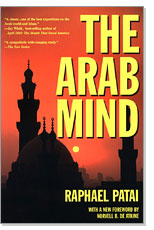
SHIFTING SANDS: THE FUTURE IN SAUDI ARABIA
When I wander around the Kingdom of Saudi Arabia (KSA) today, I can see and experience many things that were unthinkable when I first came here just ten years ago. The first significant change that strikes me is the process of arrival itself. The Immigration Security no longer appears to take pleasure in voyeuristically searching around in your baggage in the hope of discovering a porno magazine. In Riyadh, in the past, I have even seen an airport security officer cut open the lining of a Pakistani traveler’s suitcase in the search for banned or illegal substances. In this instance, none were found and the protesting Pakistani was peremptorily waved on his way, humiliatingly left to replace the scattered items inside his mutilated bag. The Westerner in those days received slightly more considerate treatment–but not by much. A colleague of mind was nearly imprisoned for being found in possession of a Bible.
I think it is certain that within the next ten to twenty years, some fundamental changes will take place in KSA. Whether they will be the same as predicted here, only time will tell. It should be kept in mind, that there is always the possibility that future changes might establish a theologically inclined state in KSA, highly critical of Western culture and foreign policy. On this possibility I do not comment. I feel it is, on the whole, unlikely to happen–and if it does, it is probable that we in the West will only have ourselves to blame for it: either through neglect, or a misreading of the situation that leads to the empowerment of, at present, scattered and weak fundamentalist groups.
Now, it is unusual for customs officers to even bother searching bags at all. Everything is put through an X-ray machine and as long as no suspicious material is seen, the traveler is free to collect his baggage and leave. As simple as that! The religious worker who used to check all DVDs and videos for feisty content, was made redundant in a moment; a forlorn casualty of a new and more modern world view that deems such intrusive practices as insulting and degrading to human dignity.
Other things have changed too. Alcohol is more freely available than it used to be-though still officially illegal-and all the latest Western movies can be bought uncensored at certain venues well known to the cognoscenti, both on DVD and video. In supermarkets and bookstores, magazines are freely available without the missing pages and black cancellations of the past. More tolerance is displayed to the adherents of other religions.
Why is all this happening? I think that it comes down to a new understanding on the part of the ruling class that the Wahhabi clergy cannot continue to wield the power and influence it once had. The Saud family has come to face the fact that the traditional Wahhabi education was rearing a vehemently anti Western and (even more important from their point of view) anti Saud citizen. But what did this Wahhabism stand for exactly?
The Wahhabi fundamentalist approach to Islam and life meant that science had to be always in agreement with religion. Our own Christian history shows clearly, that this is not always (or even most often) the case. The early days of Islam saw a great explosion of knowledge in all fields of research as a new and confident people, secure in their faith, began to search Heaven and Earth in an attempt to better understand God’s monumental act of creation and gift of life. In these early days, it is well known that Islamic scientists were well ahead of their Christian counterparts, as the fundamentals of algebra, chemistry, optics and other sciences were worked out. In addition to all this original work, it was the Muslims who preserved the Greek cultural and scientific heritage by translating it into Arabic, at a time when Europe was slumped in a long Dark Age.
Eventually, however, the conservative clergy reacted against the new sciences proclaiming that they were coming up with conclusions contrary to those expounded in the Qu’ran. From this point on, all scientific research had to take the Qu’ran as its starting point–because God’s Word was necessarily true. From this basic tenet, the Muslim clergy didn’t move until the days of colonialism fully revealed how far the once proud Islamic Ummah (or peoples) had fallen behind the West in scientific know-how.
While some Muslims attempted to make up for lost time, conservative peoples such as those in most of Arabia became more inward looking than ever and continued to rely on the opinions and edicts of extremely conservative clergies, such as those of the Wahhabis in Saudi Arabia. For a while, tensions were hidden by the need to create a new nation and build modern cities and infrastructure (using the technological knowledge of the West!). Nevertheless, after a while, tensions between the new and the old were certain to re-emerge- and the actions of thirteen Saudis on 9/11 led to a chain of events that, for the first time, fundamentally threatened the old alliance between the Saud family and the Wahhabi clergy. In particular, the recent spate of bombings in and around Riyadh made it clear that action needed to be taken. In recent months, hard line Wahhabi clerics who in the past had supported the use of violent methods have appeared on TV recanting their earlier positions and asking their young supporters to do the same. State school textbooks are under review, as are prohibitions on women drivers- and dissenting voices are now more likely to be heard than at any other time in living memory.
These are significant changes. Most young Saudis have grown up surrounded by clerics and teachers who assured them that their own austere form of Islam was the only correct and sure path to Allah and Heaven– and the innate sense of superiority conferred by this point of view, has been magnified by oil riches and easy jobs. I have personally spoken to young Saudis who were, for example, contemptuous of the idea that Americans have been to the moon. According to the information they had got, it was all a big conspiracy (like everything to do with the Americans!) and the grainy pictures were really taken in a basement somewhere in New York City!
Where then will it all lead? It is difficult to be sure due to the ubiquitous secrecy of all aspects of life in Saudi Arabia (a fact of existence that never changes here and is perhaps attributable as much to the Arabic mentality as local conditions in Saudi Arabia). However, I would tentatively like to suggest some possible future developments based on recent and observable changes in KSA (although we must always remember that Saudi policy is neither made nor discussed in public).
Within ten years, I believe that churches will be built in KSA. (although not synagogues or Hindu/Buddhist temples), and non Muslims will be allowed to enter mosques, and just possibly Makkah and Medina too. Alcohol will be on sale in five star hotels, though still not freely available in the shops and supermarkets (as in present day Dubai for example). Women will certainly be driving in ten years and the educational syllabus will have undergone an overhaul that hopefully will have created a more tolerant citizen. An obvious general benefit of all these changes for the visitor will be that he/she will feel himself much more welcome and valued in the Kingdom of Saudi Arabia than at present.






